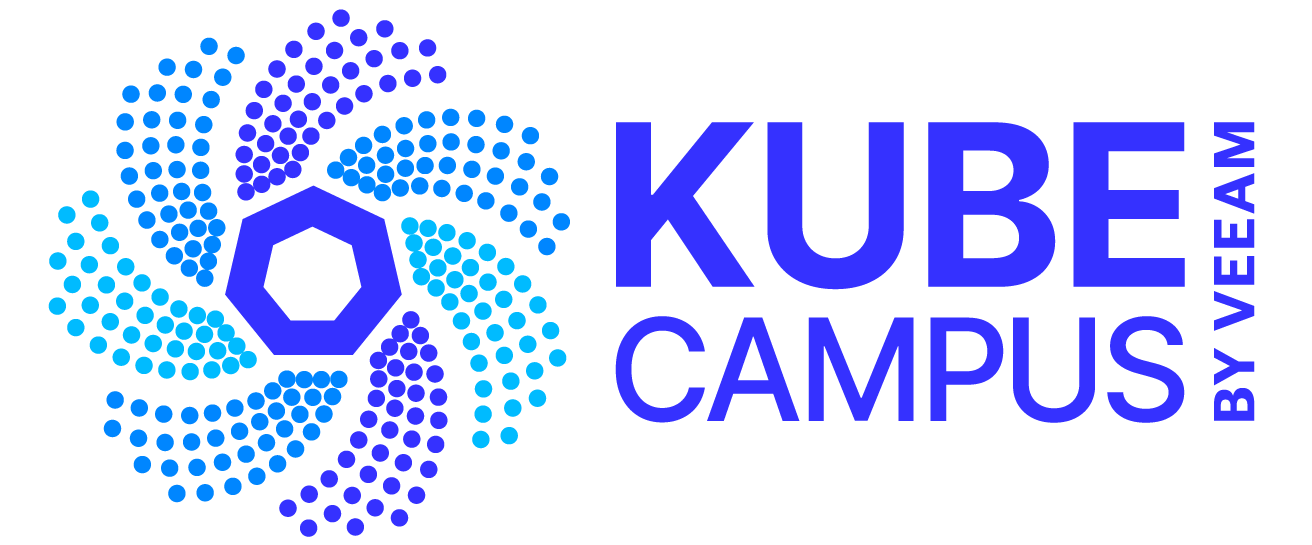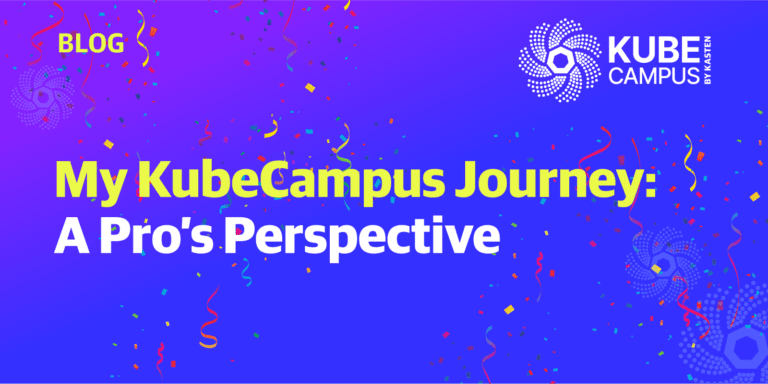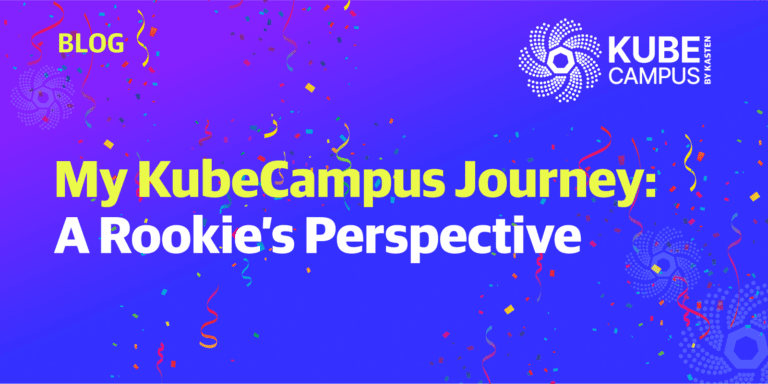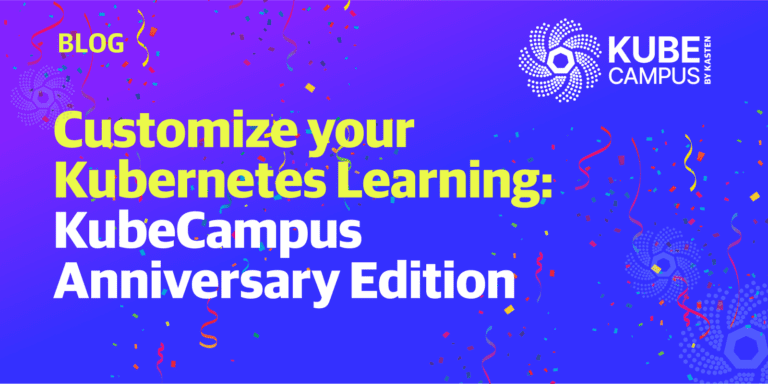Kubernetes adoption continues to explode, but all too often, the level of expertise required to support organizations making the shift to cloud native lags behind.
The feet on the ground in Los Angeles and online attendees at KubeCon+CloudNativeCon last year revealed just how new the community is.
According to CNCF data, 67% of the conference visitors in October attended the conference for the first time. This audience sees Kubernetes as the de facto choice for container orchestration but believes more Kubernetes training is needed to help this technology realize its full potential in the enterprise.
To close the knowledge gap, developers, operations managers, business users, or other stakeholders need to acquire basic knowledge of Kubernetes in short order. However, they find themselves running up against a brick wall. The training required to acquire this knowledge is challenging (although, as we see below, it can also be fun and interesting). To quote Joe Beda, one of the creators of Kubernetes and a VMware principal engineer, “Kubernetes is hard.”
Just as the advantages of distributed containerized environments are well-documented, so, too, are the struggles organizations face to acquire in-house expertise for Kubernetes-cluster adoption and management.
So how can you scale these walls?
Kasten by Veeam’s recently launched Kubernetes Learning Site was created to provide an easy-to-access and comprehensive learning and skills-assessment platform for people interested in learning more about Kubernetes.
The site’s ambitions are significant, and its self-service model arms you with the tools and support you need to help navigate your path to success. What’s more, it’s free to sign up and use.
Addressing Key Learning Audiences: From Rookies to Seasoned Pros
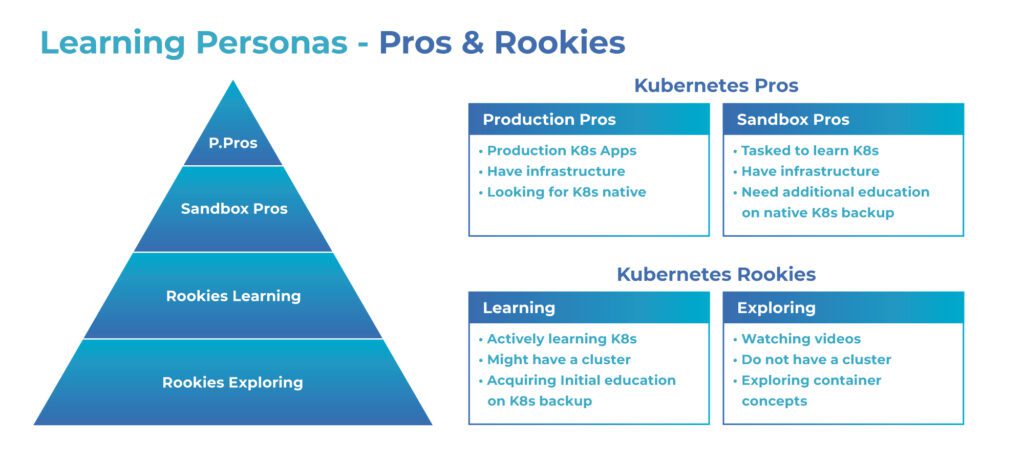

When I was doing my research to learn more about what Kasten was trying to accomplish, the project managers described how one of their first orders of business was to define the different user personas. Different types of users will, of course, have various needs specific for what is required for them to gain a working knowledge. As a means to this end, the Kasten project managers described to me how the learning center has been customized so that, regardless of your persona and your needs, there is support for your personal Kubernetes learning journey.
These personas include:
- Rookies Exploring: Members who do not have access to clusters and are looking to acquire a solid cursory knowledge of how Kubernetes works.
- Rookies Learning: Members who might have access to clusters who are looking to join a DevOps team
- Sandbox Pros: Seasoned IT professionals who may, for example, be proficient at managing VMs, but need to learn Kubernetes because their organization’s performance metrics hinge on a shift to cloud native.
- Production Pros: Seasoned IT professionals whose organization is deploying Kubernetes clusters now and need to deepen their knowledge, including how to backup and recover applications in Kubernetes environments.
IT professionals charged with advanced Kubernetes management functions can use the site to learn the basics, such as Kubernetes storage and security, then pivot to more complex topics, such as the ransomware implications of Kubernetes backup and disaster recovery.
In summary, Kasten’s Learning site for Kubernetes is intended to support the training needs of Kubernetes beginners and seasoned IT pros alike.
Self-Service Journey with Plenty of Support
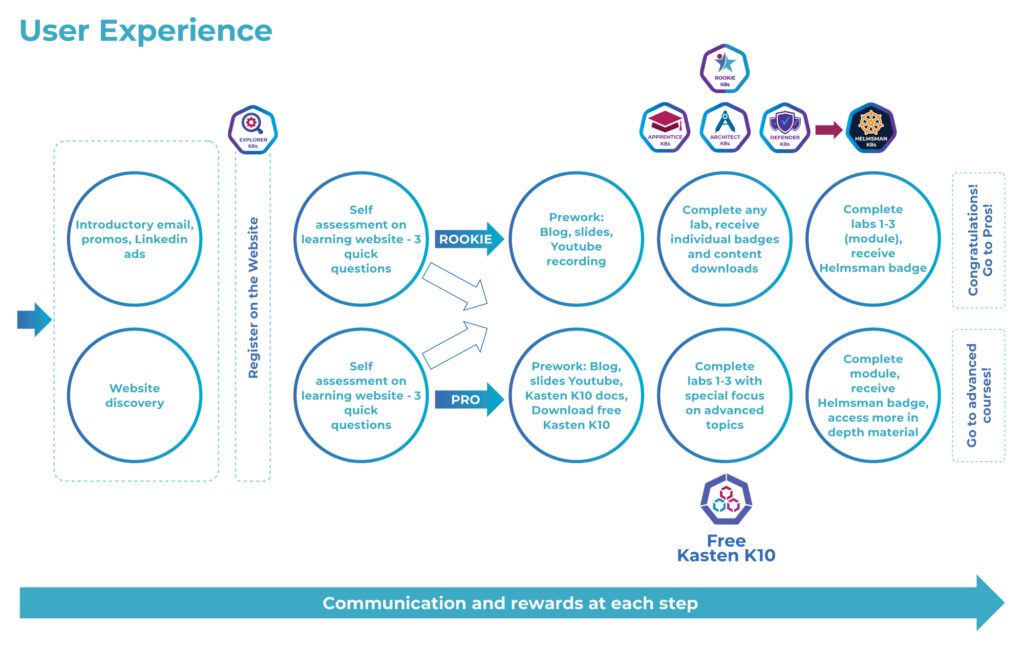

The labs on the site are designed to provide both Kubernetes theory and hands-on knowledge. Each lab consists of two sections: a review of Kubernetes terminology basics followed by challenge questions and a hands-on exercise.
The hands-on labs are what set the Kasten Kubernetes Learning Site apart from other Kubernetes learning resources. Attendees enter real commands – the same as what they would use in the real world. The commands can also be cut and pasted for use on real containers, whether you are working with clusters on the cloud or on your laptop.
I can confirm, for example, that the Spring PetClinic application used as an example in the “Building and Scaling a Kubernetes Application” lab is real, and it can be deployed and managed in your own Kubernetes environment. The same applies to “Build your first Kubernetes Cluster,” “Back up your Kubernetes Application,” “Application Consistency” and more labs to come.
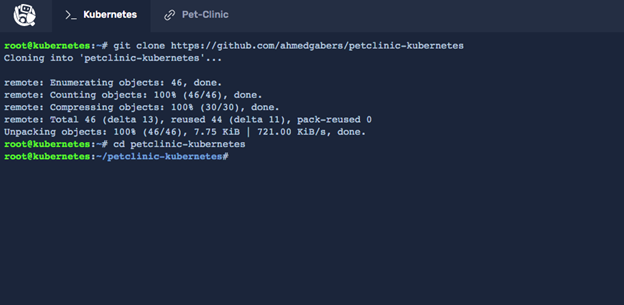

With each completed lab, you’ll earn badges and points that validate your Kubernetes working knowledge and can help further your career development. You’ll also gain access to comprehensive white papers on the lab topics and a variety of other resources, such as ebooks and links to further reading.
The Learning Site also provides a community forum for asking questions and getting support via a dedicated Slack channel or by email. Let’s say you want to install K3s (a lightweight version of Kubernetes) on a Raspberry Pi, but you have been having some issues with Docker permissions settings. You can turn to the Kasten Kubernetes Learning Site’s Slack channel for support on getting unstuck. You might even find a blog post on the topic.
The goal of Kasten’s Learning Site is not to provide 500 hours of training and 40 instructors to replace a full-scale commercial course or in-house training. And, it’s not a substitute for hands-on sandbox projects. The site is designed to be a resource with great theoretical background where you can also apply specific command lines to set up and manage clusters. The self-driven model enables you to build your expertise in Kubernetes deployment and management, and related areas such as backup, disaster recovery, and application mobility.
The success of your Kubernetes learning experience depends on what the Kasten Learning Site offers as well as your individual self-service learning plan. Before you begin, get a good idea of the breadth and the depth of the knowledge you need to accomplish your goals in Kubernetes. Also, be sure to gauge the amount of time you can invest in the learning process, then work that time into your daily schedule. The site provides a blog, slides, and a pre-recorded video as prep work for each lab. Thoroughly reviewing these will help ensure your success.
My Learning Journey
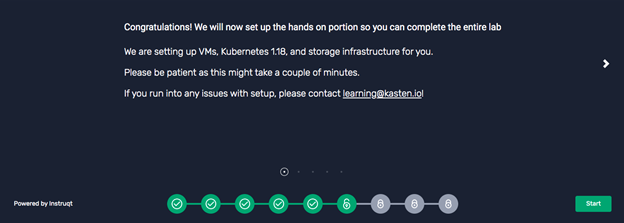

I took the Kasten learning journey a few days ago and am proud to say I have earned the K8s Architect Badge after completing lab 2, “Building and Exploring an Application.” I chose this lab because knowing how to create applications that run in Kubernetes environments is relevant to my professional interest as a technical analyst. The acquired knowledge base also appeals to my persona as a technology enthusiast. I learned the basics of stateful vs. stateless applications, Helm’s functionality as a package manager, and how to configure YAML files. I certainly do not need to learn the ins and outs of managing Kubernetes clusters at scale like operations teams do, but I want to be comfortable creating applications and/or merging requests on Git that will run in Kubernetes environments.


I must admit that creating storage classes and mounting persistent volumes — which you learn how to do at the beginning of the lab — is not essential learning for my goals. But while I probably will not ever have to complete these kinds of admin tasks, I realize that many other users will need to learn this. The extra background information I acquired was still helpful, as I now have a basic understanding of what’s going on behind the scenes:
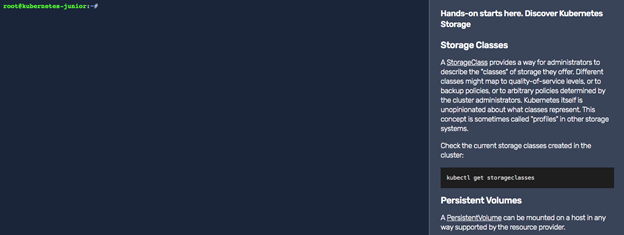

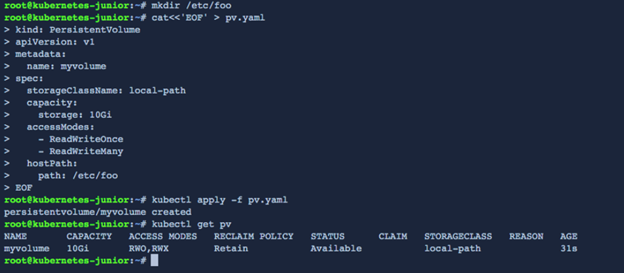

Learning how to deploy a stack on Kubernetes (the Spring PetClinic application mentioned above) by entering the working commands myself was especially helpful:


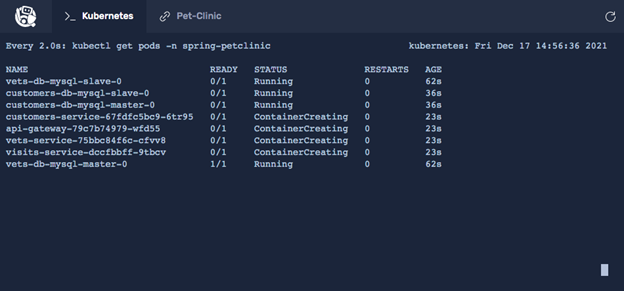

What the Future Holds for Learning
While the learning site offers much value out of the gate, stay tuned for even more. There are plans to continue to support the community through a steady stream of posts about the how what and why of learning Kubernetes.
In the future, look for deeper dives into Kubernetes management-related topics such as ransomware protection, Kubernetes cluster backup and storage, and disaster recovery.
The folks at Kasten are firm believers that learning should be fun as well as challenging, so they are planning various types of gamification. These could include hackathon-like contests, where experts face-off in Kubernetes test challenges and other types of competitions, such as a leaderboard contest.
Naturally, in-house training courses, university lectures, one-on-one tutoring, and conferences all have their merit. However, what these training experiences lack is a community hub where you can refresh your knowledge and continue to learn alongside other members of the Kasten Kubernetes Learning Site.
Full disclosure: This project will be part of my personal journey to master Kubernetes. I plan to use the community hub to learn about new topics, participate in hackathons and other contests, and share lessons learned. Despite my best intentions, I will undoubtedly forget many things and will need to retest my knowledge and retake some of the labs. I may also want to learn more about specific topics, such as how to download stateless or stateful data from Kubernetes. These are but just a few examples of what the site offers.
Ultimately, how I organize my own learning using a self-service model will help define my level of success. It should be an interesting ride.
